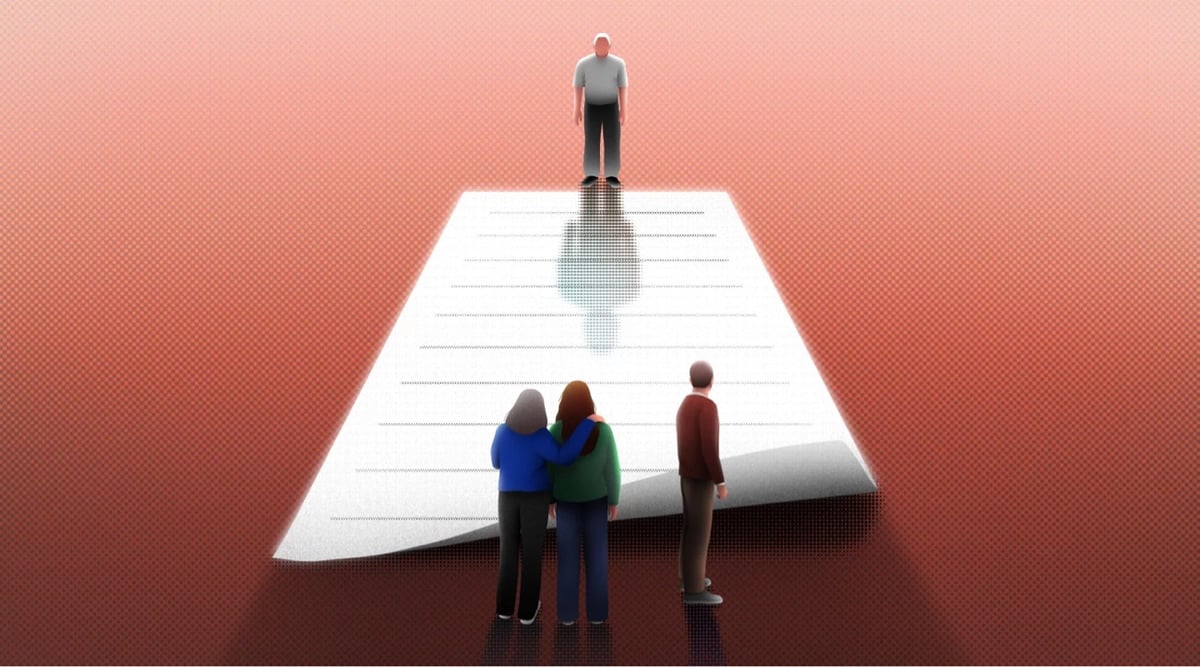A Son Tries to Rescue His Dad From Conspiracy Theories

NPR’s Embedded podcast has a three-episode series from reporter Zach Mack about a year-long effort to convince his dad that all the conspiracy theories he (his dad) believes are bogus, in an attempt to save his family.
Reporter Zach Mack thinks his dad has gone all in on conspiracy theories, while his father thinks that Zach is the one being brainwashed.
In 2024, after the latest round of circular arguments, they decided to try something new, an attempt to pull each other out of the spell each of them thinks the other is under.
Can one family live in two realities?
You can listen to all three episodes at the NPR website for Embedded or wherever you get your podcasts. This abridged companion article covers the same ground as the podcast.
When I asked my dad whether he feels like the odd man out, he answered somberly, “It’s painful at times. It’s very sad for me.”
So what happens when your family and your friends don’t respect your beliefs? Perhaps you reach for a higher purpose — something existential.
This came up in a conversation with Charlie Safford, a researcher who designs therapeutic techniques for people who believe in far-right conspiracy theories. He believes that conspiracy theories are fundamentally emotional coping mechanisms.
“Even if your father doesn’t put the pieces together, there is some awakening of his own mortality that might be contributing to all of this,” he told me. “One of the ways that you come to terms is to look back and say, ‘Did my life have meaning?’”
See also:
- QAmom (“Sean Donnelly’s mother got sucked into the world of QAnon conspiracy theories, so he made a little video about it”)
- QAnon, Conspiracy Theories, and the Rise of Magical Thinking
- Living in a Conspiracy Nation
- What Can You Do About QAnon?
- George Monbiot interviews a conspiracy theorist
- My Dad, the Facebook Addict
- In Search of a Flat Earth
- Sacha Baron Cohen Says Tech Companies Built the “Greatest Propaganda Machine in History”
Oh and me in a tweet from July 2020:
The appeal of QAnon & conspiracy theories is simple: they turn politics & public health (boring things that happen *to* you) into something active and engaging: your own personal Da Vinci Code hunt for a secret truth.
(thx, tra)





Comments
Hello! In order to comment or fave, you need to be a current kottke.org member. If you'd like to sign up for a membership to support the site and join the conversation, you can explore your options here.
Existing members can sign in here. If you're a former member, you can renew your membership.
Note: If you are a member and tried to log in, it didn't work, and now you're stuck in a neverending login loop of death, try disabling any ad blockers or extensions that you have installed on your browser...sometimes they can interfere with the Memberful links. Still having trouble? Email me!
In order to comment or fave, you need to be a current kottke.org member. Check out your options for renewal.
This is the name that'll be displayed next to comments you make on kottke.org; your email will not be displayed publicly. I'd encourage you to use your real name (or at least your first name and last initial) but you can also pick something that you go by when you participate in communities online. Choose something durable and reasonably unique (not "Me" or "anon"). Please don't change this often. No impersonation.
Note: I'm letting folks change their display names because the membership service that kottke.org uses collects full names and I thought some people might not want their names displayed publicly here. If it gets abused, I might disable this feature.
If you feel like this comment goes against the grain of the community guidelines or is otherwise inappropriate, please let me know and I will take a look at it.
This thread is closed for new comments & replies. Thanks to everyone for participating!